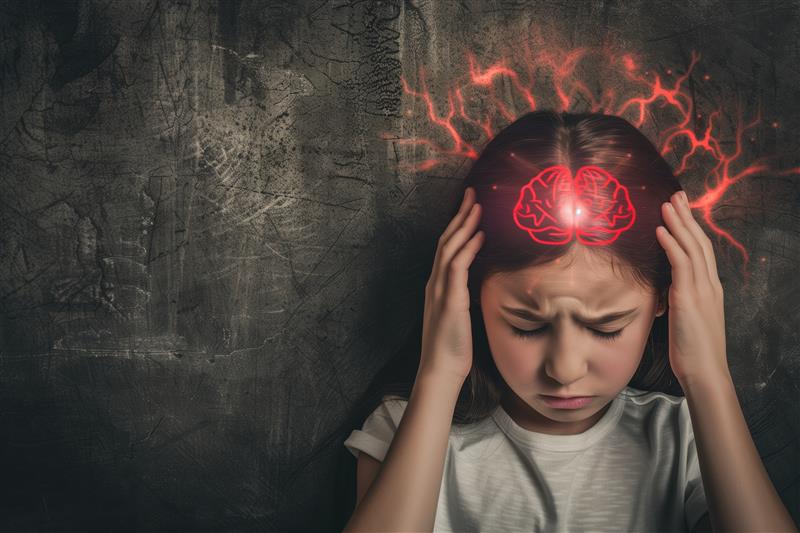
Neurodegenerative Disorders in Children – Expert Diagnosis and Care in Hanamkonda & Warangal
Neurodegenerative disorders are rare but serious conditions that gradually damage and destroy the nerve cells of the brain and nervous system. Unlike many other neurological disorders that remain stable, these conditions cause progressive loss of skills and abilities in children, such as walking, speaking, hearing, and even basic developmental milestones.
At our child neurology center in Hanamkonda and Warangal, we provide specialized evaluation and management of rare pediatric neurodegenerative disorders, helping families find answers and the best possible care for their children.
What Are Neurodegenerative Disorders?
Neurodegenerative disorders are a group of diseases that cause progressive deterioration of brain and nerve function. In children, this means that skills they once had — like walking, talking, or playing — are slowly lost over time. Some children may never gain milestones from infancy if the condition begins very early in life.
Many of these disorders are linked to genetic or metabolic abnormalities, which interfere with how nerve cells function and survive. Since they are rare, they often require expert evaluation to distinguish them from other conditions that may appear similar but are treatable.
Causes of Neurodegenerative Disorders in Children
The causes can vary widely, but the most common include:
- Genetic mutations that disrupt brain development
- Metabolic disorders that lead to toxic build-up in the nervous system
- Mitochondrial diseases that affect energy production in brain cells
- Rarely, infections or immune-related conditions
Families in Hanamkonda and Warangal often struggle to find answers because these disorders are not easily recognized at the primary care level. A consultation with a pediatric neurologist is crucial for proper diagnosis.
Symptoms of Neurodegenerative Disorders
The hallmark feature is regression of developmental milestones. A child who was once able to walk, talk, or feed independently may gradually lose these skills. Symptoms may include:
- Developmental regression – loss of previously learned milestones
- Ataxia – gait imbalance or walking difficulty
- Movement disorders – involuntary movements, stiffness, or tremors
- Seizures – frequent or difficult-to-control epilepsy
- Cognitive decline – dementia-like symptoms in children
- Hearing and vision loss
- Speech deterioration
In some cases, infants with severe forms may never achieve developmental milestones, showing delays from the earliest stages of life.
Examples of Pediatric Neurodegenerative Disorders
- Leukodystrophies (e.g., Metachromatic leukodystrophy, Krabbe disease)
- Mitochondrial disorders (e.g., MELAS, Leigh syndrome)
- Neuronal ceroid lipofuscinosis (NCL/Batten disease)
- Rett syndrome (common in girls with developmental regression)
- Wilson’s disease (a treatable metabolic cause of neurodegeneration)
- Genetic epileptic encephalopathies
Diagnosis of Neurodegenerative Disorders
Because symptoms overlap with other neurological problems, early and accurate diagnosis is vital. At our center in Warangal and Hanamkonda, we use advanced diagnostic methods to investigate suspected neurodegenerative conditions.
- MRI of the brain – to identify structural or white matter changes
- EEG – to assess seizure activity
- Genetic testing (karyotype, microarray, NGS) – to detect mutations
- Metabolic screening – to rule out inborn errors of metabolism
- Enzyme assays – for specific enzyme deficiencies
Since many treatable conditions can mimic neurodegeneration, expert evaluation is key to ensuring children get the right diagnosis.
Treatment and Management
Unfortunately, many neurodegenerative disorders have no definitive cure. However, early supportive treatment can improve quality of life and slow progression in some cases. Management may include:
- Medications – to control seizures, movement disorders, or behavioral symptoms
- Dietary interventions – such as special diets in metabolic conditions
- Physical therapy – to maintain mobility and strength
- Occupational and speech therapy – to enhance skills and independence
- Genetic counseling – for families to understand recurrence risk and future planning
In treatable conditions like Wilson’s disease or certain metabolic disorders, timely diagnosis and targeted therapy can dramatically change outcomes.
Importance of Early Specialist Consultation
Since neurodegenerative disorders in children are rare and complex, delays in diagnosis often result in missed opportunities for treatment. If a child in Hanamkonda or Warangal shows regression of milestones, unexplained seizures, or movement difficulties, parents should immediately consult a pediatric neurologist.
Early evaluation allows:
- Differentiation between treatable and non-treatable conditions
- Timely initiation of supportive therapies
- Genetic counseling for families
- Better planning for long-term care
Why Choose Our Center in Hanamkonda & Warangal?
Families trust us for specialized care in child neurology and rare disorders because we provide:
- Expert pediatric neurologists experienced in rare conditions
- Access to advanced diagnostic tools like MRI, EEG, and genetic testing
- Comprehensive care under one roof – medical, therapeutic, and counseling support
- Individualized treatment plans tailored to each child
- Guidance for families navigating long-term management
Conclusion
Neurodegenerative disorders in children are devastating conditions that cause progressive decline in neurological function. While many of these disorders do not yet have a cure, early diagnosis, supportive care, and identification of treatable conditions can make a significant difference.
At our center in Hanamkonda and Warangal, we are committed to helping families find answers, access expert care, and provide their children with the best possible quality of life. If your child shows signs of regression, seizures, or unexplained neurological symptoms, do not delay—consult our specialists today.